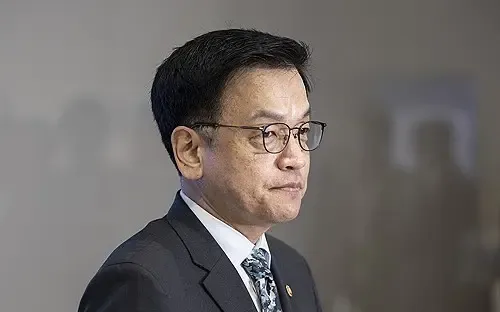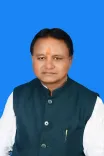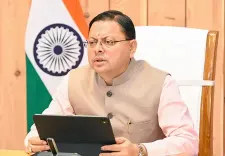South Korea and US Aim for a 'July Package' Agreement on Tariffs and Trade

Synopsis
Key Takeaways
- South Korea and the US aim for a 'July package' deal.
- Focus on tariffs, economic security, and investments.
- High-level talks will continue next week.
- Key areas of discussion include currency policies.
- Exemptions from tariffs are being requested by South Korea.
Washington, April 25 (NationPress) South Korea and the United States have agreed to collaborate on a comprehensive 'package' deal addressing new U.S. tariffs and matters of economic and industrial cooperation by early July, as stated by Seoul's finance minister during high-level trade discussions in Washington, DC.
Finance Minister Choi Sang-mok informed the press that both parties intend to finalize this agreement by July 8, coinciding with the end of U.S. President Donald Trump's 90-day suspension of 'reciprocal' tariffs. The discussions will focus on four key areas: tariffs and non-tariff measures, economic security, investment cooperation, and currency policies, as reported by Yonhap news agency.
To advance this objective, Seoul's industry ministry and the Office of the U.S. Trade Representative (USTR) plan to initiate working-level discussions next week. Additionally, USTR Jamieson Greer is scheduled to visit South Korea for high-level discussions coinciding with the upcoming ministerial Asia-Pacific Economic Cooperation talks beginning on May 15.
This agreement emerged from meetings where Choi and Industry Minister Ahn Duk-geun engaged with U.S. Treasury Secretary Scott Bessent and Greer for approximately 85 minutes at the Treasury Department.
Choi stated, 'Our assessment indicates that both sides have reached a consensus on formulating a 'July package' focused on eliminating U.S. tariffs on South Korea by July 8 when the pause on reciprocal tariffs concludes,' as he spoke to Korean journalists at the South Korean Embassy.
This week’s discussions established a broad framework for future bilateral negotiations on tariffs and additional matters—a significant improvement over earlier, less organized talks, according to officials in Seoul.
'Through today’s two-plus-two meeting, which serves as an initial step for consultations, we have laid the groundwork by refining the scope of topics for discussion and reaching a mutual understanding regarding the consultation timeline,' Choi remarked.
'It is important that both countries share a commitment to conducting calm and orderly consultations without unnecessary haste.'
These discussions followed the Trump administration implementing country-specific reciprocal tariffs, including a 25 percent duty on South Korea on April 9, which was briefly paused shortly thereafter. The 25 percent tariffs on automobiles began on April 3, with similar levies on certain auto parts expected to take effect no later than May 3.
The South Korean delegation sought exemptions from both reciprocal and sectoral tariffs impacting the region’s fourth-largest economy.
'We articulated our concerns that enforcing reciprocal and sectoral tariffs could adversely affect our bilateral economic partnership, and emphasized the necessity for exemptions and exceptions for Korea,' Choi stated.










